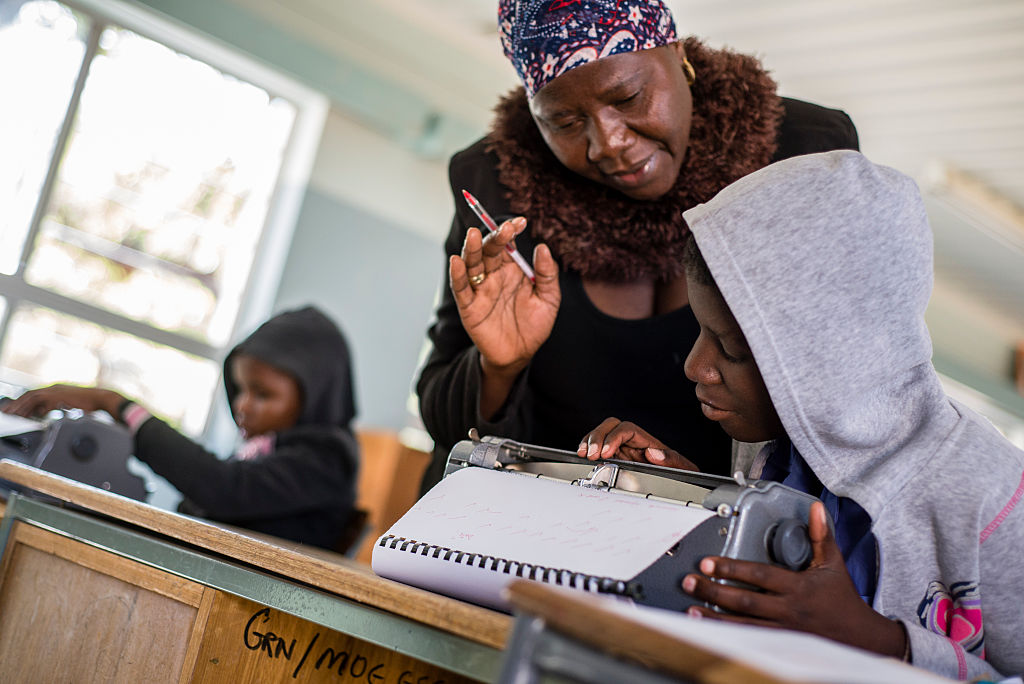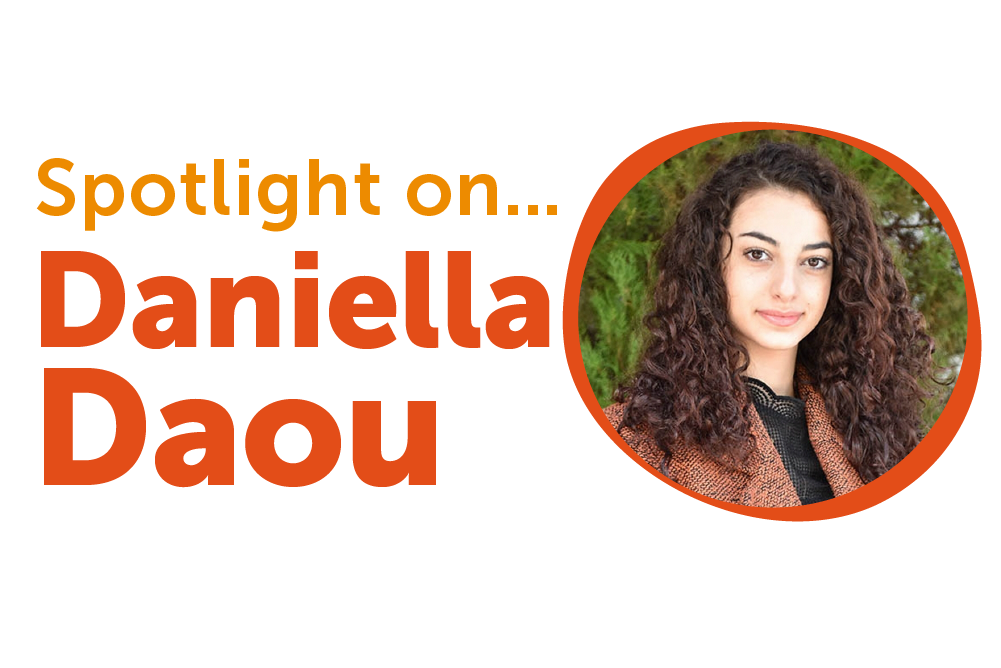
How Bertila overcame lifetime of disability and despair to go to school
Children with disabilities
By Joannes Paulus Yimbesalu, an A World at School Global Youth Ambassador from Cameroon
There are over 93 million children globally with disabilities and they still remain the most marginalised and excluded group worldwide. Their disability is seen as a taboo to society and hence they suffer exclusion, abandonment and sometimes abuse. In Cameroon over 5.4% of the population suffer from at least one form of disability.
Last September, during the official back-to-school event, our organisation – while visiting some of the schools in the communities we work in with HOPE For Children Cameroon – came across Bertila, whose leg was deformed and who had diffculty in walking. Her story was told at the time by A World at School. Bertilla’s grandmother heard of our visit and some of the work we do and decided to send Bertila to school on that day.
A member of our team approached her after finding her in tears and, while trying to inquire from the teachers who she was, we learned that she had always wanted to go to school but no one could afford her school fees. Her disability and the fact she was a girl even made things worse.
After learning of her story and with our organisation’s goal to help put every child in school no matter their circumstance, we enrolled her immediately into class 1 and this was her very first time setting foot in school at an estimated age of 12. She was glad to be in school just like her peers and her teachers suggested to us that, because of her age, she would look so big in class 1 compared to other kids. They suggested she be put in class 2. With no uniform, or any educational supplies at the time, we provided all her most basic needs.
Joannes Paulus with Bertila at her school
My twin Joannes Petrus Yuh and I, while visiting Cameroon to evaluate some of our projects, visited all the three schools we are working with. One of them was Bertila’s school and that was the very first time we met her in person. When she heard our voices, her face was immediately covered with smiles and she started thanking us for giving her an opportunity to go to school. The children welcomed us with great songs and dances and we later we had a one-on-one chat with Bertila in the presence of her only surviving relatives – her grandmother and uncle – during which we learned so much about her childhood and the challenges she faced.
Bertila’s uncle revealed to us that she was born in Bamenda in 1998, making her 17 and not 12 as earlier suggested. She could not remember her childhood. The whereabout of her father is still unknown. She lost her mother due to ill health. Her mother attended school until high school when she later dropped out and gave birth to Bertila.
At birth, Bertila, was normal but as she grew older during childhood, she started developing difficulties walking. At age four, her late mother took her to an institution in Cameroon that caters for children with disabilities. Aafter some time, her situation got better but she still had difficulties walking, which required frequent visits back to this institution for follow-up treatment which they could not afford.
Despite her disability, she would still carry out chores such as fetching water, firewood and work in the fields. These activities made her disability even worse, as it put a lot of strain to her legs. She would cry every day as she saw her peers go to school and she would ask her grandmother why she could not go to school just like her late mother did. But Bertila was a great burden to her poor grandmother, especially after losing her daughter – and at some point she gave up.
Working with Bertila has truly been an honour. She continues to give us hope in the work we do. Despite her disability, she is one of the happiest people you can think of. She is now fulfilling her lifetime dream – that of attending school and getting an education. Bertila’s transformation in the last four months has been mind-blowing.
She could not pronounce her name or say a word in English but now she can be seen struggling to pronounce her name and say a few words. She loves to sing and praise God for this opportunity to be happy again after the cruelty of life. Her classmates love her and have been very supportive of her. They carry her around and this has been a very rewarding experience.
At the end of our chat with Bertila, she revealed to us to she wants to become a school teacher just like her late mother, because she wants to help educate other kids to hope for the best because education is the foundation of every human being. Before we left, we handed over some clothes to Bertila which were donated by one of our major supporters abroad who had heard of her story and been touched by it. Bertila thanked everyone who has supported her all and expressed her appreciation through a song. We also donated to Bertila a brand new walking aid, as the one she had was not functional.
Every child, including those with disabilities, deserve equal opportunities like everyone – they have dreams and hopes and thus deserve a chance to achieve their dreams. We should each see child with disabilities based on their abilities and not their disabilities.
As Maya Angelou once said: “I’ve learned that people will forget what you said. People will forget what you did but people will never forget how you made them feel”. I think our experiences through HOPEFCC have been amazing, knowing that we have put smiles on the faces of many children.
More news

